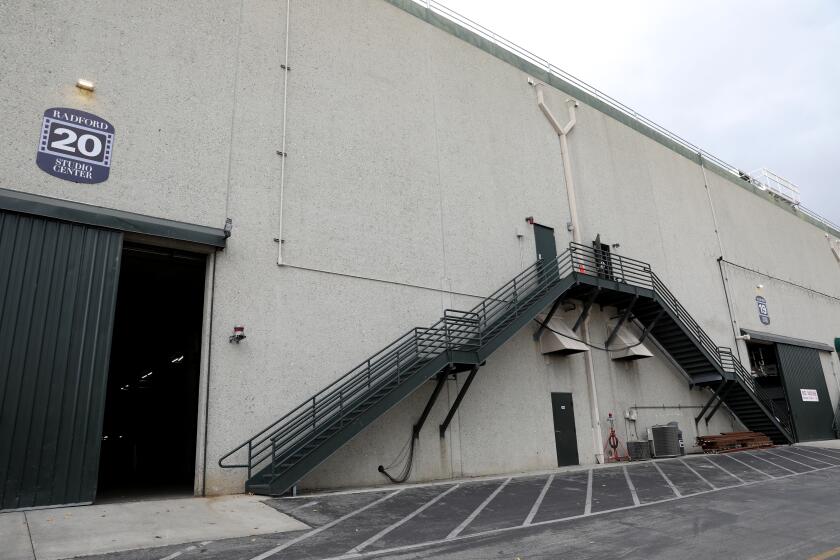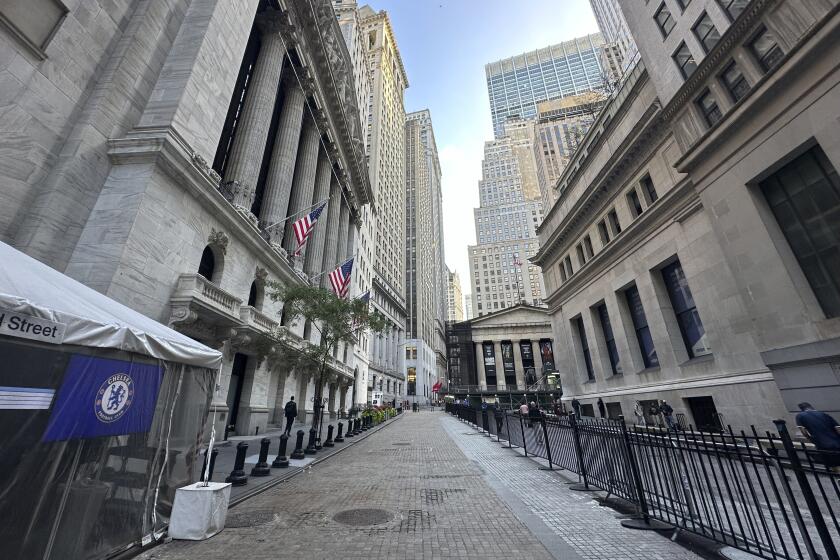Activists Urge Japan Banks to Invest in Under-Served Areas
Japanese banks, whose growing share of the U.S. banking industry has alarmed some analysts, are being urged by a coalition of activists to expand their presence here by buying banks and thrifts allegedly unwilling or incapable of serving minority and poor people in California.
In a four-page letter sent Wednesday to Taro Nakayama, Japan’s Minister of Foreign Affairs in Tokyo, the Greenlining Coalition of San Francisco wrote that it supports “foreign investments from Japan . . . assuming appropriate commitments” are made “to effectively serve all aspects of the California economy, including our more than 12 million minority residents and millions of low-income and disabled Californians.”
Nakayama could not be reached for comment Wednesday. But Shunji Yanai, the consul general of Japan in San Francisco, said he has scheduled a meeting with coalition leaders Dec. 8 to discuss their concerns. And an American expert said Japanese bankers may be receptive to making more investments in poor and minority U.S. communities to offset criticism of their growing share of the banking industry.
The 26-member coalition, which includes the state’s four largest Latino organizations, three major black civil rights organizations as well as several Asian, consumer and women’s groups, has no power to facilitate the purchase of financial institutions.
However, citizens do have a measure of veto power because their complaints are considered by regulators reviewing applications for bank mergers and acquisitions, according to a bank examiner at the federal Office of the Comptroller of the Currency in Washington, which regulates national banks.
“That’s an awful novel approach they’re taking,” said the examiner, who asked not to be identified. But the official said that although public protests of bank mergers have become more commonplace in recent years, rarely do they have “obstructive value unless they have good strong evidence” of the acquiring institution not complying with U.S. banking rules.
There was little initial reaction to the coalition’s letter from Japanese bankers.
“I don’t know if we’d be interested. Our bank is very conservative,” said Masaki Kaida, vice president and branch manager of Sumitomo Bank on South San Pedro Street in Los Angeles. A spokeswoman at the bank’s headquarters in San Francisco would not comment on the matter.
But at least one expert said some Japanese may take the coalition’s ideas seriously.
Japanese own the world’s 12 largest banks, ranked by deposits, according to American Banker magazine. In California, between 1983 and 1988, Japanese institutions doubled their share of the banking business and captured nearly a quarter of the market in commercial lending, according to a study released last year by the Federal Reserve Bank of San Francisco.
“There’s been a lot of talk recently in Japan on the importance of investing in disadvantaged communities in the U.S. and I think we’ll see at least some showcase efforts” to that end, said Daniel Burstein, author of “Yen!: Japan’s New Financial Empire and Its Threat to America.”
More U.S. bankers have begun to grant audiences to citizens groups because of the potential problems the groups can create in delaying bank merger applications or sparking government disapproval of mergers.
The federal Community Reinvestment Act, passed in 1977, allows regulators reviewing bank mergers to consider citizen complaints about whether those financial institutions are making loans and providing credit in the neighborhoods where their depositors live.
In 1987, the latest year for which figures are available, nine protests were brought under the act, compared to three in 1985, according to the Comptroller of the Currency.
More to Read
Inside the business of entertainment
The Wide Shot brings you news, analysis and insights on everything from streaming wars to production — and what it all means for the future.
You may occasionally receive promotional content from the Los Angeles Times.






